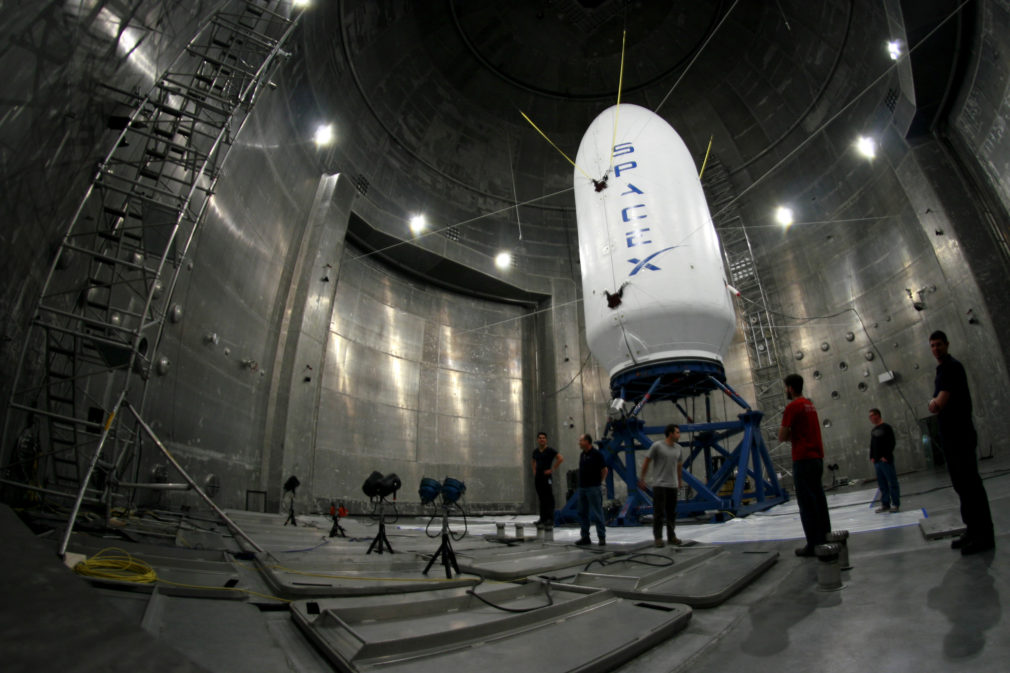SpaceX, owned and founded by the eccentric billionaire Elon Musk, has developed quite a name for itself in the spaceflight sector, previously dominated by government-funded organizations like NASA.
The company has set its sights on incredibly ambitious goals and has developed a reputation for pushing space travel into the future. SpaceX leaves many feeling that it’s operating at entirely new heights (pun intended) and at a pace decades ahead of the competition—but is this feeling founded?
The short answer is yes: SpaceX operates at a pace that sets it apart from other public and private aerospace organizations. The longer answer involves looking at all the accomplishments and ongoing work of the company that demonstrates that SpaceX is an industry leader—by a significant margin. And that’s precisely what we’ll delve into below.
Becoming the First Private Company to Successfully Launch Into Space
In 2010, SpaceX made history by being the first privately owned company to ever launch a rocket into space and successfully return it to Earth; that rocket was Falcon 9. Any similar spaceflights to do this before were launched by government or publicly owned organizations.
The success of this launch was built on the failed attempts of the Falcon 1 launches and on winning the NASA competition for developing a rocket that could help bring crew and cargo to the International Space Station (ISS). NASA has since contracted SpaceX to help them deliver payloads to the ISS.
Developing Reusable Rockets
A primary goal of SpaceX has been to build a reusable rocket—a concept that had been widely considered in the industry well before SpaceX was founded and has many benefits to spaceflight as a whole (like reduced waste and increased savings). In 2017, the company reused a rocket successfully for the first time, displaying considerable strides in the recovery and reuse of rockets. As of 2020, 31 rockets have been successfully relaunched after their return to Earth.
Setting Ambitious (and Seemingly Unattainable) Goals
SpaceX has garnered plenty of attention thanks to Musk’s lofty goals for the company, like bringing humanity to Mars. Though the company is far off from reaching this goal, it brings to mind the old saying, “Shoot for the moon, and even if you miss, you’ll land among the stars.” In other words, this seemingly impossible overarching goal guides innovations that seem small in comparison but are impressive in their own right.
Streamlining Manufacturing Efficiency
Another impressive standard that SpaceX has developed in its work is creating modular rockets. This streamlines the building and manufacturing process by building each rocket’s components from the same foundation. In addition to modularity, SpaceX manufactures its rockets on-site rather than outsourcing different parts and pieces, further streamlining the manufacturing process.
Reducing Costs
In addition to streamlining operations, a significant goal of SpaceX was to make space travel more affordable. Streamlining manufacturing goes a long way in achieving this goal, but it’s not the only way to cut costs. Musk handpicked the SpaceX team to be smaller and more efficient than those at organizations such as NASA, reducing the number of employees and associated costs needed to create operational rockets. With these cost reductions, SpaceX has reduced the price of a rocket’s design, development, and testing to almost a third of what NASA would have needed.
Selling the Concept of Commercial Space Travel
SpaceX has been a leader in bringing commercial space travel into existence, largely thanks to Musk’s newsworthy hopes of selling tickets to Mars at $500,000 each. While such space travel is still a long way off, low-Earth orbit travel is already a hot commodity, with 51 people taking the opportunity to try this. In 2021, SpaceX launched its first civilian-crewed rocket into orbit.
Standing (Miles) Apart from Competition
Though SpaceX garners the most attention, it’s not the only privately operated company to venture into the spaceflight industry. Competitors like Blue Origin, Virgin Galactic, and Orion Span are all active in the sector. Yet, SpaceX, time and again, is the first past the post for monumental achievements, like delivering cargo to ISS or launching civilians into low-Earth orbit.
Re-Sensationalizing Space Travel
Another significant accomplishment under SpaceX’s belt has nothing to do with its many innovations or strategic approaches to operations and manufacturing. Instead, it concerns the fact that SpaceX has recaptured the public’s interest in space travel. SpaceX has reanimated the excitement and thrill of space travel that has faded from the public mind since the 1950s and 1960s.
Of course, some of this has to do with Musk’s controversial actions that never fail to get media attention, but it also has to do with the company’s marketing savvy and active social media presence. They livestream lunches, bring in costume designers to create blockbuster-worthy space suits, and generally draw attention to their work in engaging ways.
SpaceX has made the average person feel like space travel is within their reach the same way winning the lottery is. It’s not just an abstract concept reserved for rocket scientists and astronauts anymore; it’s something anyone could be a part of. Even the barrier of the cost of commercial travel has been broken down by billionaires who have held a lottery-like contest to bring an average person aboard a low-orbit flight.
This re-sensationalizing of space travel gets attention and funding for the company and overall industry, helping with all the goals and innovations SpaceX is working towards.
Conclusion
Every industry has its leaders, from healthcare organizations like Pfizer, which was the first to deliver a COVID-19 vaccine, to iGaming platforms like those at casinos.com, that set the pace for the competition. But when it comes to space travel, SpaceX is that leader, thanks to these eight accomplishments that have propelled it to the forefront of the aerospace industry.





